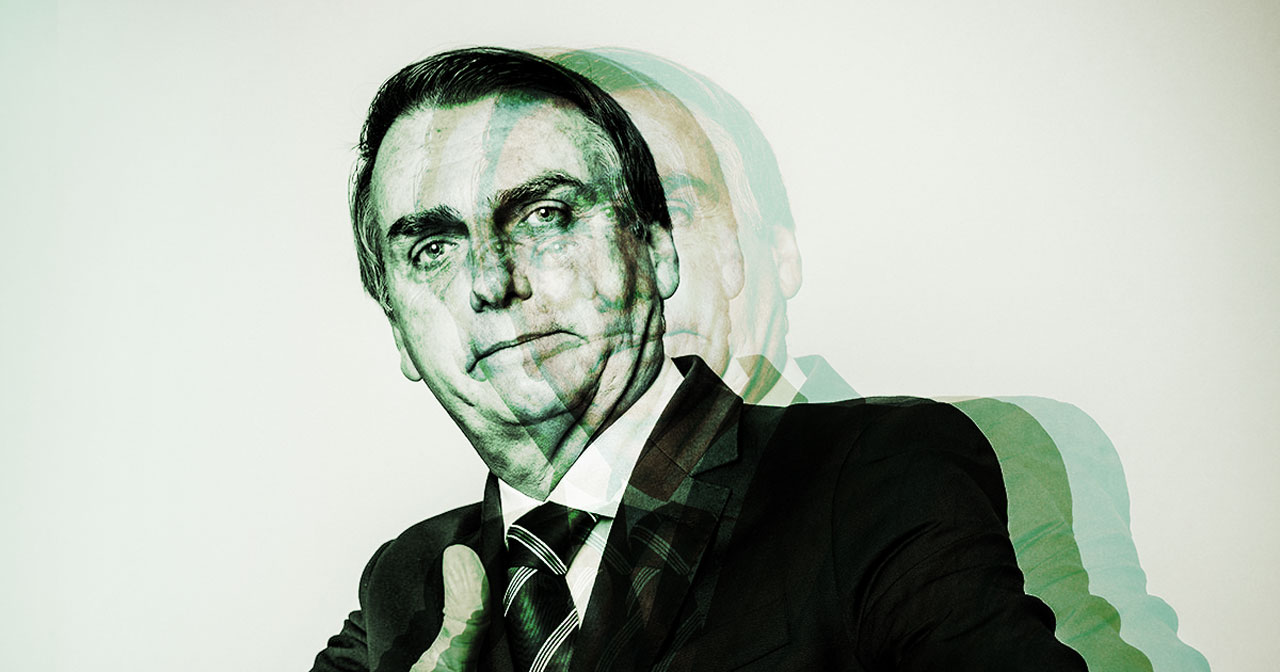Covid 19 could have been used to consolidate fascism in Brazil, but Bolsonaro’s own incompetence prevented this from happening.
by Fernando Horta
One of the characteristics that differentiates a fascist government from a purely authoritarian one is the ability of the fascist leadership to be loved and followed by the masses. Wilhelm Reich recognized fascism as a process of repression that begins in the individual psyche and is designed as a policy for the public space. But he wondered how it could be possible for the masses to like being repressed.
This is where fascism’s strength becomes apparent. Mussolini said that the people were “the clay” with which he composed his “work”. Hitler demanded that Germans “sacrifice their lives” to maintain the “pure race”. These requests were enthusiastically accepted and venerated by the people.
In Brazil, Bolsonaro asked workers to accept losing their right to retire and adapting to precarious labor conditions. He also removed education as a public good by making it increasingly elitist. His government threatens the public health system, which is recognized worldwide for its complexity and scope. All of this happened to the applause of his followers and howls of “Legend!” As Reich wondered about the masses, is this ignorance or illusion?
What Reich did not see (because he wrote in the early 1930s) is that every fascist offers the masses the symbolism of war in exchange for personal sacrifice. War is depicted as renewal. War is portrayed as the nation’s singular will and historic joy in order to alter public memories and strengthen histrionic nationalism. The entire fascist lexicon is formed by words linked to war and sacrifice. While the people are asked for sacrifice, the leader offers war and – obviously – victory. This is a symbolic exchange that the masses understand to be fair, at least for a time.
Mussolini spoke of the “wheat war” when he tried to quintuple Italy’s agricultural production. Afterwards he spoke of “war for births” when he announced plans to double Italy’s population in ten years. Hitler, in turn, built the concentration camps saying he was going to war against the “deterioration” of the German race. It was a war against the Jews, the Gypsies and the Slavs.
War was sanctified by Marinetti and the Futurists. Beyond war waged in uniform on the battlefield, futurists also defended the war of ideas, art and everything that could be transformed into a battle.
Bolsonaro started out this way too. His Justice Minister, Sérgio Moro, was a symbol of the “War on corruption”. His approximation to the army reinforced the image of a leader who boasted of having the power to kill. His promise to deliver guns to “good citizens” was a tactic in his war on the Landless Rural Workers Movement (MST) and the figure of the “bandit”. His greatest promise was a war against the left and “pedophiles”. His Neo-Pentecostal evangelical allies waged war against all other religions, even other Christians. Bolsonaro’s entire lexicon, therefore, was that of conflict, like that of 20th century fascism.
Bolsonaro, however, does not have the political awareness of a Mussolini or the fiery rhetoric of a Hitler, and this has caused him to lose his war. The Fascist leaders of the past had an accurate perception of the masses’ symbolic needs. They knew they needed to keep their flock focused on some threat – it didn’t matter if it was real or not. Bolsonaro had a historic chance to strengthen and permanently attack democratic institutions in Brazil. It was enough that he knew how to recognize his real opportunity for war. Had Bolsonaro recognized that Brazil’s war today is against COVID 19, his government would be different. If he hadn’t listened to psychotic Cabinet Ministers Paulo Guedes and Osmar Terra and sided with the doctors of this country, he would be receiving a standing ovation today. He could have used the pandemic as an excuse to clamp down the entire country. He could have shut down Congress. He could have put the army on the street to help contain the spread of the disease. If he had done this he would have undoubtedly been applauded for it. Furthermore he would have retained the support of the majority of the medical profession, who, due to the insufficient humanistic training of our medical schools, largely supported him in the 2018 presidential elections. He could have manipulated the budget to the passive support of a Congress that would be inert faced with the energy and righteousness of Bolsonaro’s response to the pandemic. He could have presented himself to the nation as a warrior against disease, like all leaders around the world are doing except Trump, Johnson and – specifically – Bolsonaro. With no intellectual capacity to understand that the neoliberalism that they are attached to is driving them to the bottom, these three leaders have lost their wars and lost their chance to keep their flocks under control.
With Sérgio Moro’s resignation, the exposures of crimes perpetrated by his sons and desperate attempts to attack governmental institutions, Bolsonaro has also lost the “war on corruption”. All that remains is his war against the left and against “perverted behavior”. This is what his government will focus on after the pandemic. The failure to recognize the real poliitical possibilities is a failure of fascist Bolsonaro. It can now be argued that had he listened to Brazil’s medical community instead of the rotten wing of the Brazilian army and lunatic businessmen perhaps 60,000 Brazilian lives would have been saved. As this article nears its conclusion, a reader may wonder if Brazil’s transformation to fascism could have been positive in any way. It is worth remembering that the flocks that Hitler and Mussolini saved from the economic crisis after WW1 were sacrificed during WW2 on a gigantic scale.
60,000 Brazilians have just died. Stay at home. Stay alive.
This article originally appeared in GGN, was translated by Brian Mier, and can be read in its original Portuguese, here.
[qpp]

